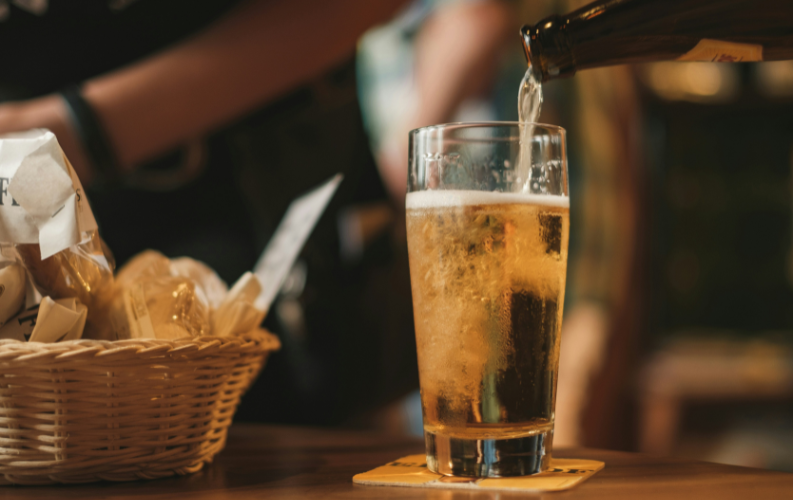A storm is brewing across Kenya’s creative, sporting, and advertising industries following a raft of proposals by the National Authority for the Campaign Against Alcohol and Drug Abuse (NACADA), which, if implemented, could radically reshape the country’s entertainment and sponsorship landscape.
The draft National Policy for the Prevention, Management and Control of Alcohol, Drugs and Substance Abuse has sparked intense debate among key stakeholders, who warn that the proposed guidelines would negatively impact the livelihoods of influencers, athletes, and media professionals.
Published amid growing public concern over alcohol and drug abuse in Kenya, the draft policy touches on a wide range of sectors: from content creation and celebrity endorsements to sports sponsorship and the legal drinking age.
At its core, Nacada has framed the policy as a response to what it describes as a public health crisis. Among its more contentious proposals is the recommendation to raise the legal drinking age from 18 to 21, a suggestion that has received mixed reactions, with many questioning both the rationale and the practical consequences of the move.
Celebrated singer Bien Baraza was among the first to express his outrage online, igniting a digital firestorm that quickly drew in fellow musicians, influencers, marketers, athletes and policy analysts.
Bien condemned the government’s proposal to crack down on alcohol advertising, branding the move hypocritical and a direct assault on Kenya’s creative economy.
“What is this fake morality? Pretending to care about the very youth they are killing. Then we wonder why unemployment is rampant,” Bien fired on social media, describing the stance as both performative and economically damaging.
Other contested proposals included the intended ban on online alcohol sales and prohibiting any form of celebrity endorsement or media personality appearance in alcohol advertisements.
“There shall be no production and broadcasting of music, film, stage plays and performances or any audio-visual programme that positively depicts and glorifies consumption of alcohol, drugs and substances in an electronic or print media,” read the policy.
For artistes like Bien, the draft regulations are an infringement on creative expression. But Nacada insists that the proposals are rooted in evidence-based policymaking and are aimed at protecting the nation’s youth from an escalating crisis of addiction and mental health issues.
“We are not banning creativity. We are regulating access and exposure, especially where it blurs the line between lifestyle and addiction,” clarified the Authority in a series of posts on X.
In the series of posts, Nacada acknowledged the concerns but stood by what it termed the urgency of reform.
According to Nacada, the proposed policy was informed by rising cases of underage drinking, mental health struggles, school dropouts, and addictions.
“We are witnessing a generation quietly overwhelmed by content that normalizes harmful coping mechanisms. But this isn’t just about banning, it is about building. We are putting forward practical, positive solutions that empower rather than punish,” said the Authority headed by Dr Anthony Omerika.
Nacada is appealing to the private sector to rethink sponsorships by looking beyond alcohol and betting.
“According to Nacada’s 2022 data, alcohol remains the most widely used substance in Kenya, contributing significantly to the burden of morbidity and mortality. Currently, one in every six Kenyans aged 15 to 65 uses at least one drug or substance of abuse, with one in every eight consuming alcohol,” said Dr Omerika, the Authority’s chief executive officer.
Statistics show that 1.36 million Kenyans are addicted to alcohol, nearly 888,000 to tobacco, and over 230,000 to cannabis. Alarmingly, nearly half of those who consume alcohol and cannabis are addicted.
“What is even more concerning is that nearly half of current users of alcohol and cannabis are addicted, underscoring the urgent need to expand treatment and rehabilitation services across the country,” noted Omerikwa.
On treatment, rehabilitation and aftercare services Nacada intends to promote provision of and access to quality and affordable treatment, rehabilitation, and aftercare services for persons with substance use disorders (SUDs).
This is to be financed from a solatium levy from manufacture, production and importation of alcoholic drinks, forfeiture of properties and assets used for illicit alcohol and drug trafficking, funds appropriated by Parliament and other sources.

While Bien and others have blasted the policy, not everyone in the music world is against it. Singer Nviiri offered a more introspective take, recounting a personal experience that changed his view about alcohol promotions.
“Siku ambayo nilifanya promo ya pombe Kayole nilihuzunika mno kujua wangependa chakula au hela na kazi, ndiposa ikawa safari yangu ya mwisho kutumika hivi (the day I conducted alcohol promotion in Kayole, I was greatly saddened on learning locals wanted food, money and jobs, and that marked my last promotion),” he shared.
Rapper Jay, who is based in Austria, weighed in with a more global perspective, drawing from European standards.
“There is a fine line between creativity and responsibility,” he said. “But when it comes to advertising alcohol, the rules are clear and for good reason.”
According to Rapper Jay, one is not allowed to put out ads that show kids drinking, or those that suggest alcohol will solve their problems, boost their confidence, or make them stars.
“If we want to keep our influence and still do good, we have to think twice about the message we are sending. It is not about killing the vibe, it is about protecting the next generation,” he argued.
Evelyn Kasina, an IT consultant and digital learning advocate, cautions that even the most well-meaning reforms could fall short if they do not address the root problem: unrestricted digital access.
“While Nacada’s proposal is well-intentioned, it risks becoming another reactionary policy unless it is supported by holistic, community-driven change,” she says.
“Take the so-called ‘watershed period’, no alcohol or adult content ads between 5am and 10pm. It sounds ideal on paper, but children aren’t watching TV anymore. They are on YouTube, TikTok, and Netflix, where content is on-demand and often lacks proper age regulation,” she adds.

In her view, a teenager with a smartphone, M-Pesa, and a delivery app can easily order alcohol or vape pens without scrutiny since the vendor will not ask questions because the payment comes from a registered adult.
“Flavoured vape pens disguised as regular items and weed-laced cookies are making their way into classrooms, churches, and assemblies. This isn’t just a policy failure. It is a cultural and technological blind spot we must urgently address,” says Kasina, pointing to the alarming normalization of drug use.
For lawyer Essendi Kenneth, the policy marks a significant shift that requires careful legal and cultural calibration.
“This reform is a complex socio-legal shift that will deeply affect Kenya’s creative economy,” he says. “Many content creators and celebrities risk losing income streams linked to alcohol advertising, but the government must engage these stakeholders in cultural and social initiatives that promote public health and responsible messaging,” notes Essendi.
He emphasised the need to balance public health and constitutional rights.
“We must safeguard constitutional freedoms under Article 33 while protecting public health under Article 43. A clear regulatory framework, stakeholder dialogues, especially with marginalized creatives, and transitional support like tax incentives or grants are essential for fair implementation,” says the lawyer.

According to Essendi, what is needed is a clear regulatory framework, stakeholder dialogues, especially with marginalised creatives and transitional support like tax incentives or grants for fair implementation.
Essendi also advocates for modern enforcement tools, saying:
“AI tools and collaboration with global platforms are vital to monitor cross-border content and VPN loopholes. Definitions must be crystal clear, and a phased rollout with appeals mechanisms will ensure the policy is just, enforceable, and culturally sensitive.”
The sports sector is not spared either.
Nacada’s proposal states that a manufacturer, importer, distributor, wholesaler, retailer or any related agent of alcoholic drinks shall not name or brand a sports team by the name of an alcoholic drink’s product; sponsor or brand a sports league, tournament or a national team.
The backlash from sports professionals and enthusiasts was fast and furious.
“This is definitely going to hurt our sports sector. Look at rugby, for example. Millions of shillings are pumped towards this sport and, without the sponsorship, we are going to witness a downward spiral,” said rugby coach Tom Lankoi.
Earlier this year, Kenya Breweries Limited (KBL), through its Tusker brand, sponsored the 2025 Kenya Cup semi-finals and finals with a Sh10 million package. That kind of support could vanish under the new regulations.
Globally, alcohol sponsorship in sports is massive.
Heineken alone renewed its UEFA Champions League deal for $365 million, and according to Statista, alcohol companies spent over Sh78 billion ($600 million) on sports sponsorships in 2020.
“Alcohol sponsorship not only encourages direct consumption but also builds unconscious associations between alcohol and the excitement of watching sports,” says Professor Kerry O’Brien of Monash University’s School of Social Sciences.
As the conversation continues to heat up, one thing is clear: Nacada’s policy proposals have cracked open a wider debate about culture, influence, responsibility, and the nation’s values.
Will Kenya find a middle ground that upholds public health without crippling its creative and sports industries?
Can the government, creatives, and private sector work together to build an economy that thrives without harming its youth?


